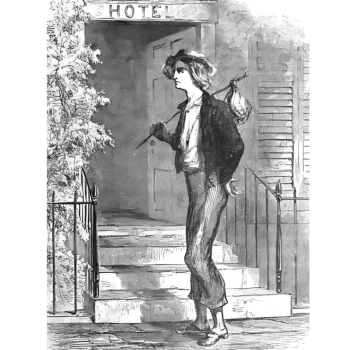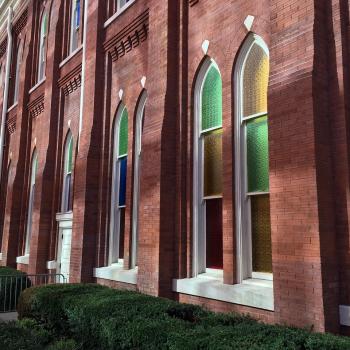Whether this helps or hinders an organization to make its case for tax-exempt status may depend on numerous factors, including its size and internal structure, but one thing remains certain: it will be dealing with lawyers and auditors, not theologians and religious scholars. The list of characteristics that define a "church" under U.S. law provides some guidance; however, the tax code is unclear as to which of these requirements are negotiable, how many must be met in order to qualify, and what other mitigating circumstances might be considered during the application. For precisely this reason, even mainstream Christian churches often choose to formally apply for 501(c)(3) status rather than risk an audit. As is usual for any minority religion, Pagan religious organizations are far more likely to come under closer scrutiny and cannot take for granted their automatic inclusion within definitions of "church" and "religion" based largely on a Judeo-Christian mainstream.
It is precisely for this reason that, as modern Pagan communities continue to grow worldwide, it becomes increasingly important for Pagans to participate in the legal negotiations for increased recognition and acceptance within larger mainstream society. As Pagan religious organizations grow and expand the social conception of what qualifies as a "church," our covens, groves, temples, and sacred centers will gain increasing freedom from federal regulation. As cultural acceptance for Pagan religions continues to increase, outdated and convoluted laws such as those in the IRS tax code will be ever more likely to be challenged and overturned. Yet such change depends largely on the legal precedents set by those willing to confront these laws through the legislative and judicial processes. To gain religious liberty, the law itself must be confronted, expanded, and re-imagined from the inside out.
Resources
Detailed information about the services and review process of the Charity Commission of England and Wales can be found on their website.
For more information about the religious charitable status of The Druid Network, you can find my article, "Being a Druid is Good for Society, Says UK Charity Commission," available at The Wild Hunt.
Federal Form 1023 is available online as a .pdf through the IRS website and instructions and tips for filing Form 1023 are also available online. The IRS Tax Guide for Churches is also available online as a .pdf through the IRS website.




